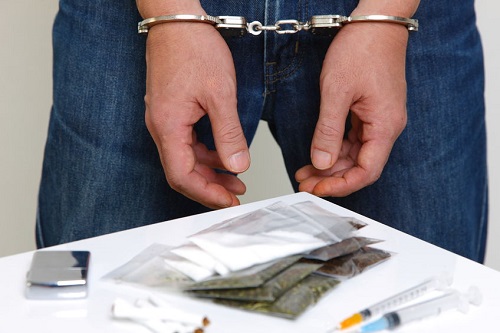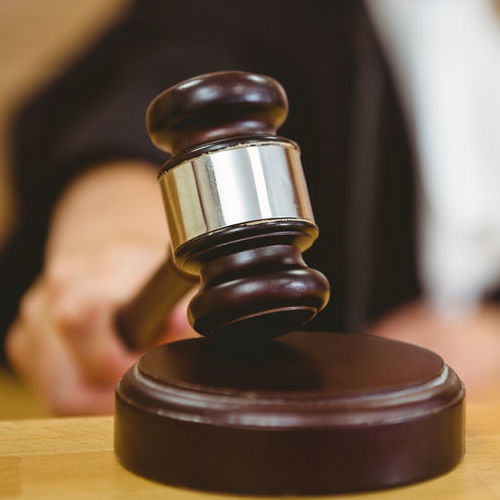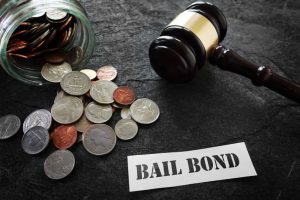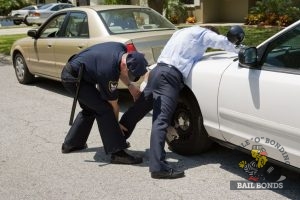
Making Sense of Georgia Criminal Codes
What’s the difference between battery and aggravated assault? What about burglary and larceny? Learning the meaning behind these crimes and the potential ramifications for arrest charges may be challenging, but it can also help in the event your loved one faces criminal trial.
Today, we’ll explore some of the most common arrest charges in the state. We’ll also take time to answer important questions that local Georgians really need to know. Let’s get started!
Common Arrest Charges
Criminal law changes every year. Sometimes changes seem insignificant, while others create a dynamic shift in how arrest charges affect our lives. It’s crucial to understand how these charges are defined and categorized. Below, we’ll explore some of the most frequently levied charges in the state.
Examples
What are Examples of Crimes?
Arrest charges typically fall within three dominant categories: drug-related offenses, violent crime, and property-related misconduct. While there are too many charge codes for arrest to explore in one short list, here are some common examples of crimes.
Examples of Crimes
- Drug-Related: Possession of a Controlled Substance
- Drug-Related: Trafficking of a Controlled Substance
- Drug-Related: Distribution or Manufacturing of a Controlled Substance
- Violent Crime: Aggravated Assault
- Violent Crime: Rape
- Violent Crime: Robbery
- Violent Crime: Murder
- Property-Related: Auto Theft
- Property-Related: Arson
- Property-Related: Larceny
- Property-Related: Burglary
While some of the charges involve similar circumstances (violence, theft, drugs, etc.), each term comes with its own specific entries in the Georgia criminal code. For a more detailed explanation of each charge, consult the Justia legal database!
Classification
What Can You Be Charged With?
There are two distinct levels of crime in the state of Georgia: misdemeanors and infractions. In the eyes of the law, misdemeanors are considered lesser crimes that rarely incur significant jail time. With that being said, misdemeanors may still result in unpleasant penalties, such as fines, probation, and (yes) incarceration. The maximum penalty for a misdemeanor is up to $5000 in fines and a year in jail.
Felonies carry heavier weight in Georgia law, with more serious consequences. Violent crimes generally incur the harshest prison sentences (10 years to life without parole), while theft charges typically result in shorter terms. Unlike most other states, Georgia’s criminal law does not classify felonies by predefined categories. Each case with felony arrest charges receives a customized sentence from the presiding judge.
Crime Statistics
Most Common Arrest Charges
The Georgia Bureau of Investigation maintains a Crime Statistics Database to track specific index crimes. These include violent offenses and non-violent, property-related crimes. The report encompasses the entire state of Georgia, dating back as far as 1980 and as recently as 2017. You can find a copy of 2017’s report, which police-reported crimes in each metropolitan statistical area (MSA) and the rest of the state, here. Unfortunately, this list does not track drug-related crimes.
Of all the crimes indexed in the Bureau’s report, larceny was the most frequently reported. Larceny involves the theft of another person’s property without the use of force. Almost 211,000 cases of larceny were reported in the state of Georgia! Aggravated assault claims the title for most common violent crime in the state, with over 23,000 cases reported in 2017.
Frequently Asked Questions
Below, we’ll answer some important questions that our experts hear from time to time. Keep in mind, it pays to consult a criminal defense attorney if you have questions following arrest charges!
Dropping Charges
Can Charges Be Dropped?
There are two particular outcomes in which charges may go away. In cases were either the arresting police officials or the prosecuting attorney believe they have insufficient evidence to prove a crime, they may choose to drop charges before they have been submitted to court. A capable criminal defense lawyer may help you negotiate for charges to be dropped. While this is fairly rare, it does happen.
After criminal charges have been submitted to the court however, it is up to the either the presiding judge or prosecutor to dismiss them (for whatever reason).
Detainment
Is it Possible to Be Arrested But Not Charged?
Police are not supposed to arrest people without a reasonable charge. However, you can be detained if an officer has reasonable suspicion. Charges may be filed during the detainment period. Thankfully, the Constitution protects people from being held long without being charged. As stated earlier, it is also possible for you to be arrested, only for charges to be dropped prior to filing.
Incarceration
Do You Go to Jail Right After Trial?
If you are sentenced to incarceration, you will escorted by the police to a correctional center and given a case manager. Do all felonies result in jail time? No. While many felonies result in jail time, some lesser cases may only result in probation and/or fines.

Learn More About Your Options!
One of the most stressful aspect of facing arrest charges in Jefferson, GA is awaiting trial in lockup. If you or your loved one have been allowed bail, you have the opportunity to continue earning income at your job, spend time with family, and coordinate your defense. To get answers for frequently asked bail questions or to arrange your personal service, call the Double "O" Bonding team at (706) 353-6467!













 When facing charges, you want to get started on your defense and case before your court date. In this situation, you may find yourself having to make many choices very fast. One of the biggest decisions people may find themselves struggling with is whether they should have a court-appointed public defender or if they should seek a private attorney for their case. The first thing you must do is remember that whichever you choose, both of these types of lawyers are professional with experience in the law field. They will both provide the service you need and work for you. Once you understand this, you can consider the way both work differently in order to make the best choice.
When facing charges, you want to get started on your defense and case before your court date. In this situation, you may find yourself having to make many choices very fast. One of the biggest decisions people may find themselves struggling with is whether they should have a court-appointed public defender or if they should seek a private attorney for their case. The first thing you must do is remember that whichever you choose, both of these types of lawyers are professional with experience in the law field. They will both provide the service you need and work for you. Once you understand this, you can consider the way both work differently in order to make the best choice.